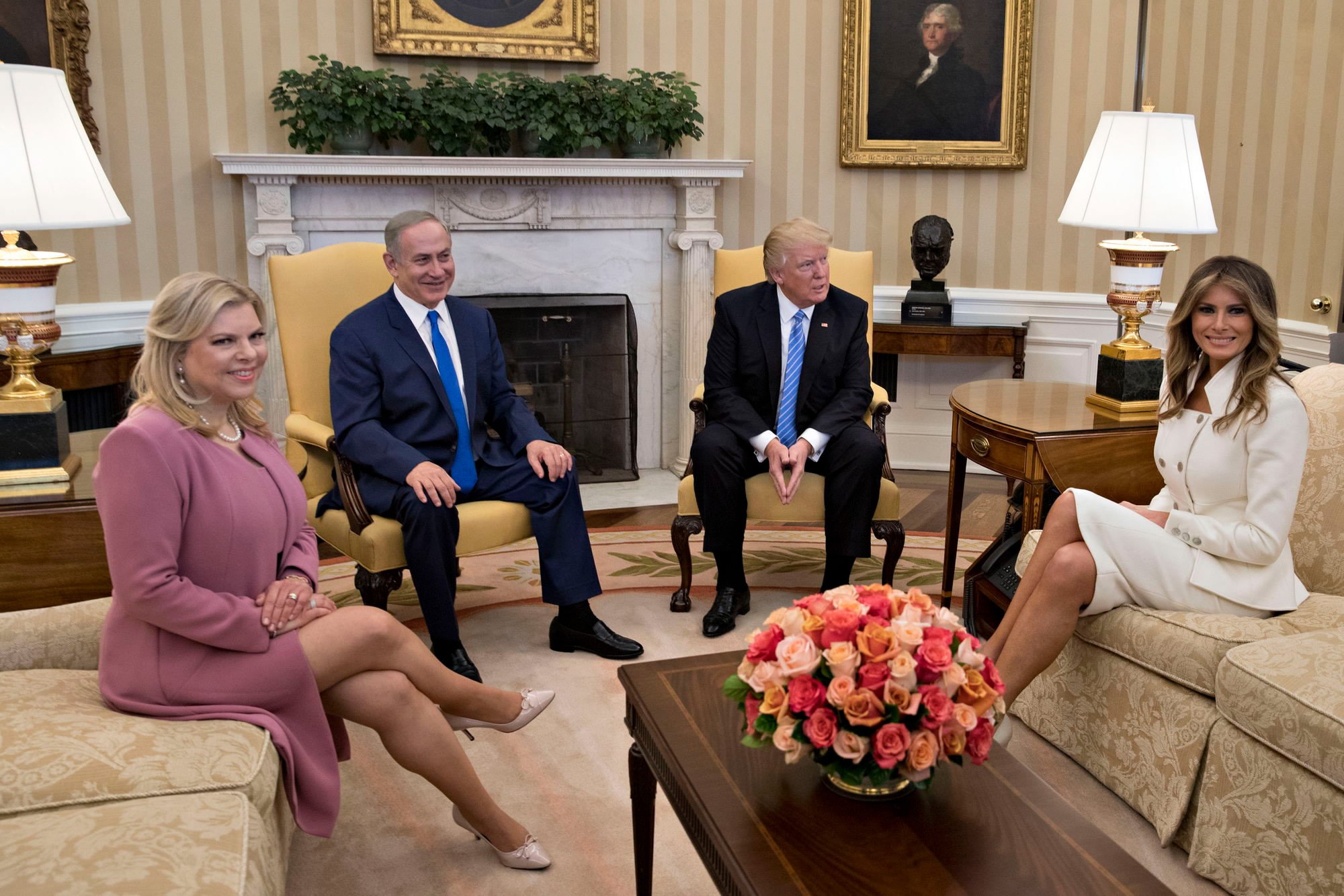Guest commentary by Meir Javedanfar
Prime Minister Benjamin Netanyahu has not seemed this happy for a long time.
Standing next to newly elected US president Donald Trump at their recent joint press conference, Netanyahu genuinely seemed at ease. This is in direct contrast to the “icy” body language which dominated some of his previous meetings with former US president Barack Obama.
THE QUESTION OF SETTLEMENTS

Benjamin Netanyahu, Israel's prime minister, gets into his vehicle while leaving the West Wing of the White House after meeting with US President Donald Trump, in Washington, D.C., US, on February 15, 2017. /CFP Photo
The Israeli PM had good reason to be pleased. With President Trump, he does not have much reason to be concerned about settlement expansions. Unlike Obama, Trump does not seem to believe that settlement expansion is a serious obstacle to peace. Trump's nomination of David Friedman for U.S ambassador to Israel endorses this view. It should be noted that Friedman is “the volunteer head of American Friends of Beit El Institutions, which raises about $2 million a year for the settlement.” Beit El was founded in 1977 in the West Bank on private Palestinian land.
Netanyahu needs to expand settlements, perhaps more now than ever before, as there are two cases currently being investigated by the Israeli police against him. This has placed him at the mercy of more right-wing elements in his coalition government, such as the Jewish Home party. The latter, whose biggest bloc of voters come from the settlements, has called for continuous expansion and even annexation of 60% of the West Bank, referred to as “area C”. So if Netanyahu does not continue expanding, the Jewish Home party could threaten to withdraw their support from him. With two highly public police cases against him, this is the last thing which Netanyahu would want. So despite Trump's calls that he'd like Netanyahu “to hold off on settlements for a little bit”, in reality this is unlikely to happen in any meaningful way, as Netanyahu is under pressure at home.
THE QUESTION OF IRAN

US President Donald Trump, Israel Prime Minister Benjamin Netanyahu, his wife Sara Netanyahu (L) and US first lady Melania Trump sit in the Oval Office of the White House in Washington, D.C., US, on February 15, 2017. /CFP Photo
Meanwhile, Netanyahu and Trump also seemed to speak in unison when they talked about Iran. And here again, the Netanyahu government seems to be in good company. Calling the Iran nuclear deal the “worst deal” he has ever seen , Trump, much like Netanyahu, seems to believe that further sanctions are needed against Iran in other areas, such as its missile program. With Iran’s calls for the elimination of the state of Israel, a statement which was even placed in Hebrew on one of its missiles which it tested in March 2016, Tehran is inadvertently helping both Trump and Netanyahu justify the portrayal of Iran's missile program as destabilizing to the region.
THE QUESTION OF SYRIA
One country which was absent in their entire joint press conference was Syria. In fact it was never mentioned. The country is in ruins, with a host of armed opposition forces as well as government forces batting it out with the help of the Russian air force. According to a recent estimate, it would take Syria “at least 20 years to reach its pre-war GDP once hostilities cease.” What Trump plans to do regarding Syria is unclear, and this should worry everyone in the Middle East.
Sometimes no decision is worse than a bad decision.
(Meir Javedanfar is an Iranian – Israeli Middle East analyst. He teaches at the Interdisciplinary Center (IDC) Herzliya and is research fellow at the Meir Ezri Center for Persian Gulf Studies at Haifa University. )
11172km










